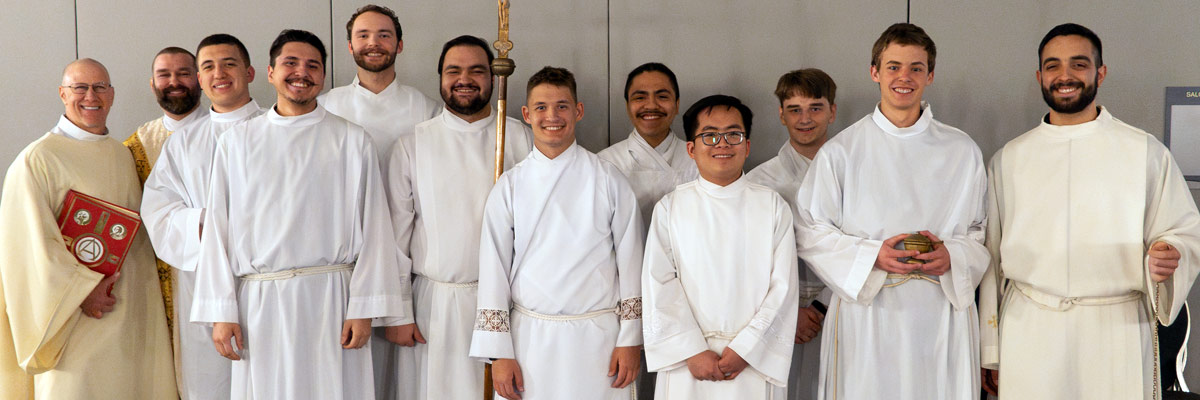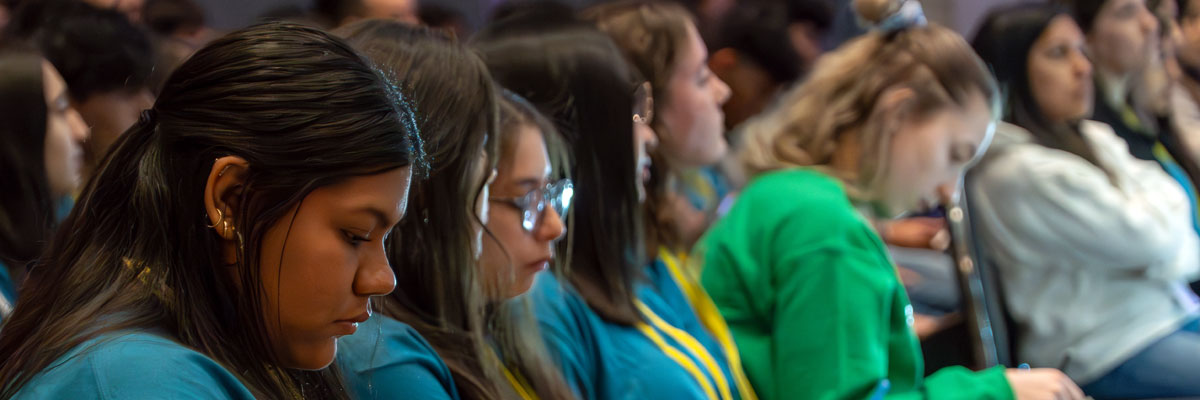Official Website of the
Catholic Diocese of Little Rock
Friday of the Third Week of Advent, Year C, 2024
Published: December 20, 2024
Bishop Anthony B. Taylor preached the following homily during a Mass for diocesan staff at St. John Catholic Center in Little Rock on Friday, Dec. 20, 2024.

Bishop Taylor
We often speak of the Old Covenant in a way that presumes that there were only two covenants: the Old Covenant of the Old Testament and the New Covenant of the New Testament, and we say that the new fulfilled the old, which is true.
But it is not true that there was only one Old Covenant: there were several. In one, God promised to give Abram a son and make him the father of a great nation. In exchange, he required circumcision. In another, he promised to give them the Promised Land, but they had to put their faith in the one true God.
In the covenant with Moses he made them his chosen people and gave them his laws on Mount Sinai. And in another with King David in today’s first reading, he promised to send a Messiah who would reign forever.
Jesus shows us that God is always true to his promises — to the death. And since every covenant is a reciprocal agreement between two parties, we are obligated to do the same thing that he did. So, do you fulfill your promises to him? To the death?
God made the Israelites his chosen people, gave them the Promised Land, revealed his law to them and promised to send them a Messiah: four old covenants, and in fact there were even more; for instance another with Noah.
The New Covenant God made with us in Jesus fulfills these covenants and extends them to all of humanity. Previously he made Abram the father of a single nation: Now he makes Jesus the king of all nations. Previously he gave them an earthly Promised Land: Now he gives us a heavenly Promised Land.
Previously he redeemed only one nation, freeing them from Pharaoh in order to make them his chosen people: Now he redeems all nations, freeing us from Satan in order to make us his new chosen people, his Church.
And on Christmas God will also fulfill his covenant with King David, raising up from his dynasty a Messiah who would rule forever. As the angel Gabriel announced to Mary in today’s Gospel, "the Lord God will give her son the throne of David, his father, and he will rule over the house of Jacob forever, without end."
God fulfills his promises, but every covenant is a reciprocal agreement between two parties and we often do not fulfill our promises to him. We, like some Israelites, have not completely abandoned our idols: We make money into a false god, we long for power and possessions and pleasure and prestige instead of doing God’s will.
We do not obey his laws, we do not love our neighbor, we only do the minimum in order — hopefully — to avoid going to hell. Jesus did not save us only partially, he gave himself for us completely and now he expects us to reciprocate.
The Son of God stripped himself of the privileges of his divinity in order to embrace our damaged human condition because that sacrifice was necessary for him to accomplish his great work of redemption, a work that he completed 33 years later when he sealed with his own blood the New and definitive Covenant with all of humanity.
Jesus shows us that God is always true to his promises — to the death. And since every covenant is a reciprocal agreement between two parties, we are obligated to do the same thing that he did. So, do you fulfill your promises to him? To the death?
Like Mary, who said at the end of today’s Gospel: "I am the servant of the Lord, let it be done to me according to your word." That’s how we should respond as well: "I am the servant of the Lord, may his will be fulfilled in me as well."









